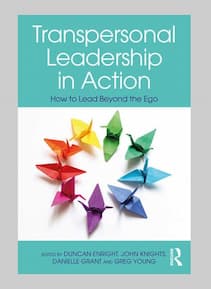Written by George Perry, March 2021 
In a recent biopic I watched about the lives and career of the legendary comedy duo Laurel and Hardy, I was pretty taken aback by what I saw. I hadn’t read the synopsis and had no idea what to expect, but since I’d always had an admiration for the legendary pair, I thought I would invest into watching it.
At first, I thought it was going to be a docudrama based on reasons why Laurel and Hardy were so successful, yet as the events in the film unfolded, I was astounded to realise that the movie was portraying ways how they were unsuccessful.
In what turned out to be the final tour of their career, instead of being triumphant, there was a rather pitiful feeling. The once-heralded comedic heroes, who should’ve been packing out top-bill theatres of the day, instead found themselves being booked at smaller, second-rate venues.
Fall from Grace
Quite literally ‘singing for their supper’, Laurel and Hardy were faced with having to perform in a somewhat humiliating fashion, to small audiences in low-key venues. Unfortunately, even though the pair were famed for their comedy; this was no laughing matter.
Yet the point is that, due to their professionalism, Laurel and Hardy pulled it back from the brink, and this is something that ultimately has added to their greatness. The movie demonstrated that the pair managed to pull it back – and essentially, this is the reason why we now remember their legacy for what it is.
Bringing it Back
The narrative of the film highlighted that even though at one point Laurel and Hardy nearly threw everything they had built for themselves away, they reconciled their differences, came to a greater understanding about the attachment they had to each other, and how the talents they could offer were inseparable.
Thus, by continuing to work together. Laurel and Hardy managed to alter the course of history, whilst also firmly taking their place in it. Laurel and Hardy had a commitment to their craft, but even more so they understood their partnership.
Coexistence
The biopic documented the friction that existed between the pair, which almost led to their demise, but it turns out they didn’t dislike each other at all; they loved each other.
 After tempting fate by nearly parting ways, it quickly dawned on them that they could not resist the fact that they had become two parts of a whole, and that one couldn’t exist without each other. It wasn’t a case of just Laurel and Hardy; it was Laurel AND Hardy.
After tempting fate by nearly parting ways, it quickly dawned on them that they could not resist the fact that they had become two parts of a whole, and that one couldn’t exist without each other. It wasn’t a case of just Laurel and Hardy; it was Laurel AND Hardy.
Laurel and Hardy is not only who they were, as two individuals joining together to form a partnership; Laurel and Hardy is what they were.
It was their coexistence that made them who and what they were.
Co-leadership
Since listening to the most recent podcasts from Fabio Segura, I have been fascinated by the principle of Co-CEOship. What does that mean to divide and delegate power precisely between two people? Is co-leadership comparable to co-existence? What impact does this have on effective leadership?
I was extremely curious to find out just what kind of impact that it would have on the work and impact of organisations, particularly in regards to the principles of transpersonal leadership.
In the words of Fabio himself, as spoken in Part One of his podcast, he tells us that essentially what led him on his journey to get to where he is today (which is absolutely fascinating, as featured in the first three minutes of the podcast), from what originated in the conflict zone of 70s and 80s Colombia, is that, “there has to be a better way of dealing with our differences”.
He goes onto say that one of the first correlations he made is that conflict and leadership are “intimately related”. He also mentions that conflicts, such as wars, are always a ‘lose-lose situation’ for all parties. As he put it, this was always one of the seeds of his reflection on leadership.
Perhaps more crucially, he goes onto say that “the strengths that we value for ourselves, are also our hidden weaknesses. And the other way around, what we feel are weaknesses, could be turned into strengths”. It is perhaps for this reason that the Jacobs Foundation adopt the principle of co-leadership, as Fabio discusses in Part Two of the podcast.
Many Minds are Better Than One
In fact, co-leadership is assigned by the Jacobs Foundation at all levels of program and portfolio management. As Fabio goes onto say, this system allows the organisation to achieve a few things:
- There are complementary skills sets to look at complex problems and opportunities from a broader variety of angles.
- Co-leadership shares the responsibility effectively so that there is less pressure when wanting to take time off. Someone else is present who is equally empowered to take the lead when the other person is busy with something, or that person simply wants to take some downtime.
- It allows us to have a ‘sparring partner’, to have that other person constantly encouraging you, someone to share the achievements, as well as being there to tackle the problems together.
 Conflict and Leadership Are Intimately Related
Conflict and Leadership Are Intimately Related
With my anecdote above about Laurel and Hardy, what I sought to prove is that even with the presence of conflict, two is often better than one. One can exist without the other, it’s just that by combining forces, the power of two becomes much stronger than what each person could ever bring individually.
A few organisations have adopted the concept of co-leadership, but it is very intriguing to see it being applied in the way that is done at the Jacobs Foundation, and there is no doubt that there is a lot we could learn from their transpersonal leadership journey.
I’ll leave you to listen to the podcasts (2 parts are available) for yourselves, to see what kind of influences you can draw from them, but first I thought I’d bring a final reflection on some other famous partnerships, whereby one without the other just doesn’t work.
Again, think about the pair as a product, more than just two parts of an equation, but both combined is actually mightier than merely the sum of their parts.
What other famous duos from history can you think of where each couldn’t exist without the other?
It seems that people like partnerships. Perhaps a bit like marriage, the compromise and the idea that strength comes from unity, it seems that partnerships work. For this reason, I can now easily start to see how the principle of being co-CEO can work for Fabio and the Jacobs Foundation.
The Benefits of Becoming a Transpersonal Leader
I’ll leave you with Fabio’s three top tips for someone to understand the benefits of becoming a transpersonal leader, taken from his podcast. Again, they are totally fascinating podcasts, and if you haven’t listened yet, you can access them here.
- Authenticity – We can only be the best versions of ourselves. This requires us to be self-aware whilst celebrating ourselves fully. It is about the bravery to embrace ourselves and the journey to becoming the best one can be.
- Trust – this implies the liberation of all of the energy that leaders put into trying to control a situation. Many of these elements are out of our control. Instead, it is better to invest that energy into finding the ways in which we can adequately respond to the changing environment.
- Vulnerability – it is a false preconception that leaders who admit to being vulnerable in certain situations are weak. Saying the words “I cannot do this alone” will lead to the most amazing support, understanding, and empathy from the people you work with. This will make you stronger and altogether more effective in achieving the desired changes for your organisation.

